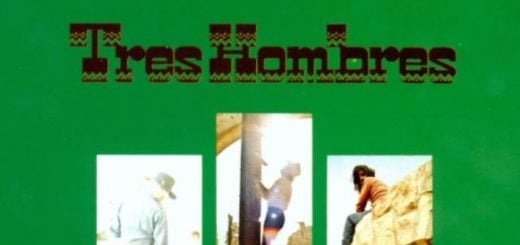“I Gotsta Get Paid” by ZZ Top
Anyone even slightly adept in street-based contractions would know that the word “gotsta” is a combination of got and to. So in full, this song’s titular phrase (“I Gotsta Get Paid”) would actually read “I got to get paid”.
And well, let’s cut right to the chase. As indicated later in the post, this is actually a cover of a rap tune, even though it has a different name than the original work. And as originally intended the phrase “25 lighters”, which pretty much highlights the lyrics, is actually a colloquial term meaning, most comprehensively put, that the vocalist(s) is a crack dealer, which considering the original artists they may have well been.
Either way, we would presume that ZZ Top is not actually promoting such a lifestyle nor are advocating the practice of it. So considering the title and all, what the “25 lighters” would represent in this context is most simply the vocalist’s desire to get paid.
Thesis Sentiment of “I Gotsta Get Paid”
Indeed he’s presented as a hustler alright, but what he’s hustling would be his “flows” and “shows”, i.e. his music. And we can say the thesis sentiment of this outing, once again as implied by the title, is that the narrator has dedicated himself to grinding incessantly, once again in the name of generating paper.
So even though some wording may be identical between “I Gotsta Get Paid” and the rap song it was derived from, ultimately we can say they have two different meanings.
In the original, the idea of the narrator(s) making his money off of music is more of a subplot. This is an idea that’s only really expounded upon by one of the three vocalists. But in the ZZ Top track, this activity takes on more of a prominent role.
Or let’s say it’s the only perceivable way, as presented, by which the vocalist will generate the type of income that he is longer for. So conclusively, we’ll also say it’s interesting that a track about this very topic, i.e. the need to make money from music, actually served as ZZ Top’s 21st century comeback song.

Facts about “I Gotsta Get Paid”
You may think the title of this song reads more like one appropriate for a hip-hip act than blues rock, the latter of which ZZ Top specializes in. Well according to Genius, “I Gotsta Get Paid” is actually a cover of a rap song. And said tune would be 1998’s “25 Lighters” by DJ DMD, a hip-hopper from Texas.
That particular song sampled another 1998 tune, “Nite and Day” by Al B. Sure. This is a name some readers would recognize as a popular R&B singer from that decade. So that is why Al B. Sure and his associate, Kyle West, are credited as writers of “I Gotsta Get Paid”.

The other writers are:
- Joe Hardy
- Gary Moon
- Dorey Dorsey
- ZZ Top’s own Billy F. Gibbons
Gibbons and Hardy also produced the song, as did Rick Rubin, a legendary musician who, despite his diverse résumé, is most associated with hip-hop himself.
ZZ Top was introduced to 25 Lighters, as well as let’s say hip-hip in general, via the aforementioned Gary Moon. This is a band that possesses, shall we say a history of concocting songs based on African-American music. But in the case “I Gotsta Get Paid” they were adept enough in the game to know that this time around they had to properly credit whom they sourced their songs from.

The “La Futura” Album
This track is from ZZ Top’s full-length “La Futura”. Being released on 10 September 2012, this project is actually the last studio album the trio has dropped to date. Thus considering that one-third of the original crew, bassist Dusty Hill (1949-2021), passed away nearly a decade later, this also serves as the last studio album that he, vocalist Billy Gibbons and drummer Frank Beard, aka ZZ Top, had put out while he was alive. And it was done so by American Recordings and Republic Records.
Did “I Gotsta Get Paid” chart?
Apparently, “I Gotsta Get Paid” doesn’t have a chart history to speak of. But it still proved to be a fan favorite and the song credited with making ZZ Top once again musically noteworthy over two decades after their heyday, which was in fact an impressive one.









“Ultimately we can say they have two different meanings ” ?
When the black artist utters certain words its advocating crack selling. The same words uttered by the white artist advocate something entirely different.
Are you familiar with the phrase “forked tongue?
On the contrary, I believe you totally have drawn up your own “racist” interpretation of the writer’s outline here. The lyrical meaning doesn’t imply any ethnicities, only actions. ZZ Top changed the lyrics only to reflect “getting paid” for the music rather than the drugs. It’s mindsets like this that simply cannot leave racial implications alone and will continue to fuel this decades old social problem.